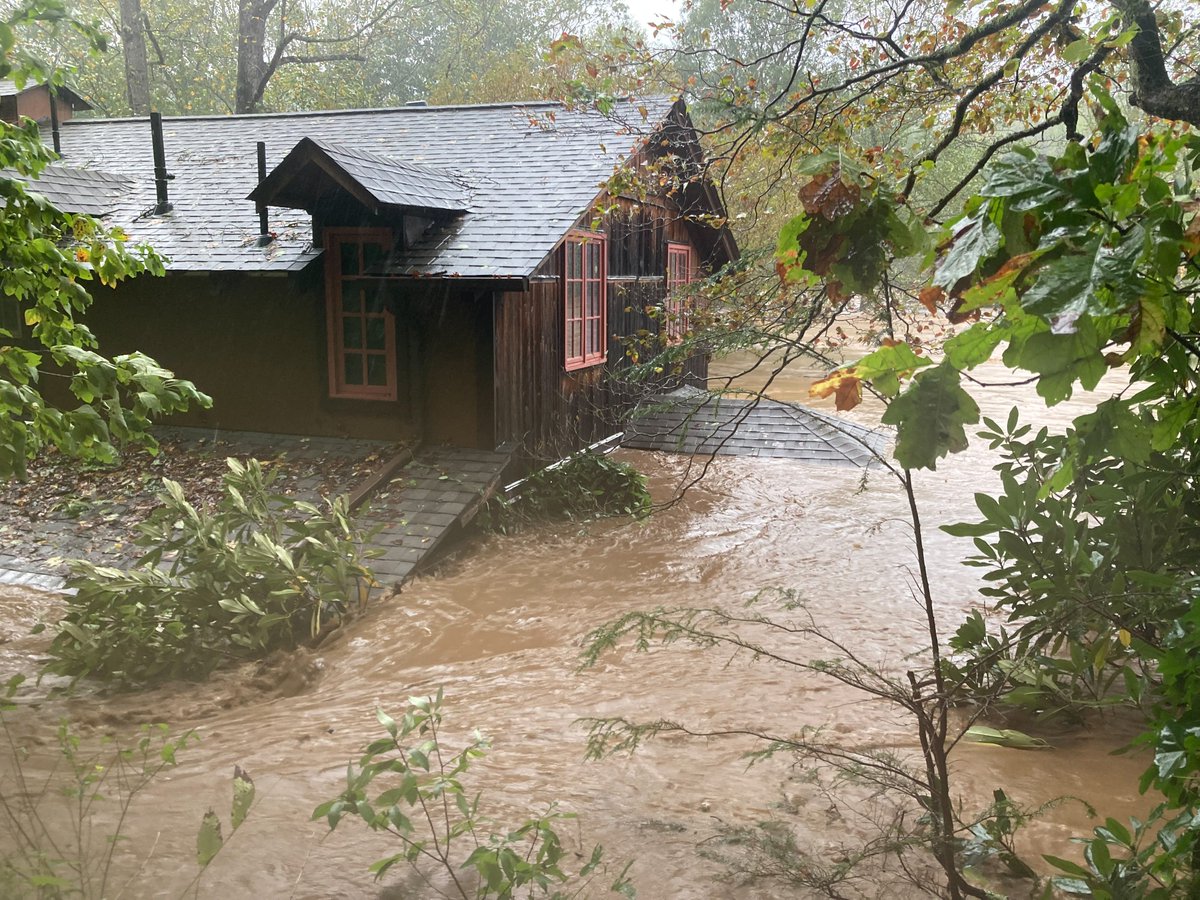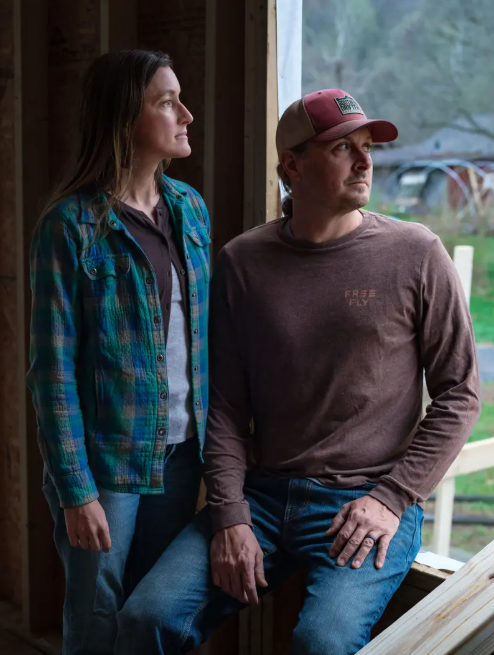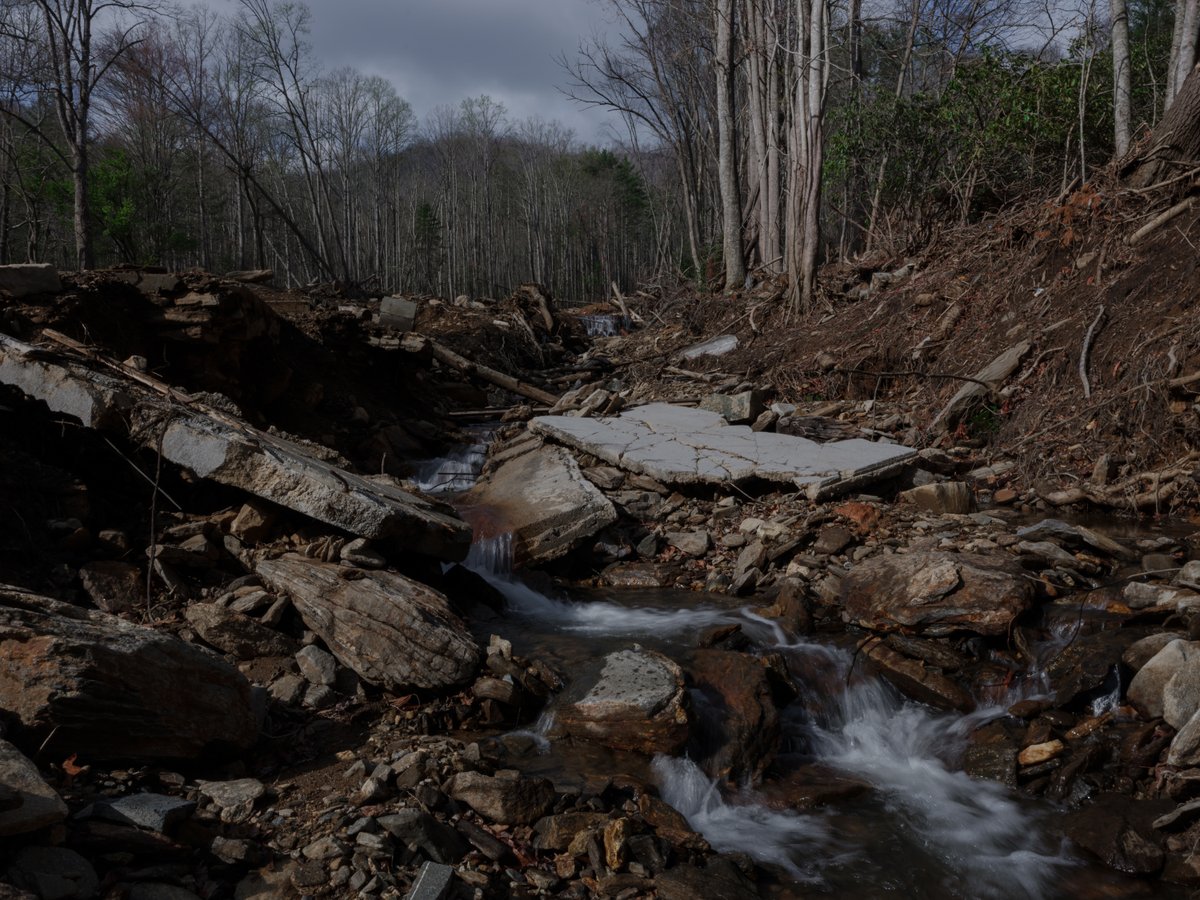🧵
As hurricane season approaches, I want to tell you why I spent the past 4 months reporting this new story about Hurricane Helene.
In 1999, I spent 13 hours in a car on a gridlocked interstate with my 3-week-old baby during the disastrous mass evacuation from Hurricane Floyd.
As hurricane season approaches, I want to tell you why I spent the past 4 months reporting this new story about Hurricane Helene.
In 1999, I spent 13 hours in a car on a gridlocked interstate with my 3-week-old baby during the disastrous mass evacuation from Hurricane Floyd.
Many states, including my home state of SC, have dramatically improved coastal evacuations since.
But when Hurricane Helene closed in on the mountains of NC, I was struck by how many people were in their homes along rivers and creeks already flooded from 2 days of prior rain.
But when Hurricane Helene closed in on the mountains of NC, I was struck by how many people were in their homes along rivers and creeks already flooded from 2 days of prior rain.
Most were largely unaware of the catastrophic danger approaching – despite dire @NWS @NWSGSP warnings. 

I spent much of the past 4 months in western NC — particularly Yancey County, a sublimely majestic place that suffered the worst per capita loss of life. It’s hard to convey the enormity of destruction there.
So many survivors shared stories of incredible trauma and loss.

So many survivors shared stories of incredible trauma and loss.


Susie and Brian Hill told me that around midnight on Sept. 26, a firefighter knocked on their door.
A nearby creek was blocking the road in one direction. Soon, there could be no way out.
“I can’t tell you what to do,” he said, but he urged them to move to higher ground.
A nearby creek was blocking the road in one direction. Soon, there could be no way out.
“I can’t tell you what to do,” he said, but he urged them to move to higher ground.

But up the north fork of the creek, no first responder knocked on Janicke Glynn’s door.
Her tenant was sheltering with her. When they went to check on his creekside cottage, a wall of water and mud swept them away.
Her tenant was sheltering with her. When they went to check on his creekside cottage, a wall of water and mud swept them away.
Almost 10 miles away, Ray and Susan Strickland had never seen anything like the onslaught of rain and wind.
In a lull, they stepped outside to survey the damage. Suddenly, a 20-foot wall of trees, boulders and mud rocketed towards them: a landslide.
In a lull, they stepped outside to survey the damage. Suddenly, a 20-foot wall of trees, boulders and mud rocketed towards them: a landslide.

Unlike in several nearby counties, Yancey officials did not issue evacuation orders. How local officials across the region communicated weather service warnings varied considerably.
In my latest @propublica story w/ Cassandra Garibay and @mrsimon22, we wanted to understand what happened in Yancey.
We also wanted to understand how @NWS warnings went so largely unheard.
propub.li/3HhMYvW
We also wanted to understand how @NWS warnings went so largely unheard.
propub.li/3HhMYvW
More than 100 people died in NC due to Helene. Freshwater flooding was the top killer.
In recent years, far more people have died due to hurricanes’ freshwater floods than coastal storm surges, a huge shift.
blog.ametsoc.org/2023/08/08/rec…
In recent years, far more people have died due to hurricanes’ freshwater floods than coastal storm surges, a huge shift.
blog.ametsoc.org/2023/08/08/rec…
Yancey officials say they did the best they could against an unprecedented assault of wind and rain, and the resulting landslides.
It’s true that no one alive has seen anything like Helene’s assault on the Black Mountains.
But the weather service messages were eerily accurate.
It’s true that no one alive has seen anything like Helene’s assault on the Black Mountains.
But the weather service messages were eerily accurate.
I hope our reporting prompts critical inquiry into lessons learned from Helene – as Floyd did 2 decades ago – so that inland officials can better move people out of harm’s way ahead of coming storms.
And they are coming. Hurricane season begins June 1.
And they are coming. Hurricane season begins June 1.
Our team plans to continue reporting on Helene’s devastation of western North Carolina.
We want to know: What is one thing the storm destroyed that you would have saved had you evacuated? To tell us, leave a voicemail at 828-201-2738.
We want to know: What is one thing the storm destroyed that you would have saved had you evacuated? To tell us, leave a voicemail at 828-201-2738.
And if you would like to share tips with us about lessons that could better prepare these communities and others for future storms, as well as how the rebuilding effort is unfolding, please email helenetips@propublica.org.
propub.li/3HhMYvW
propub.li/3HhMYvW
• • •
Missing some Tweet in this thread? You can try to
force a refresh





